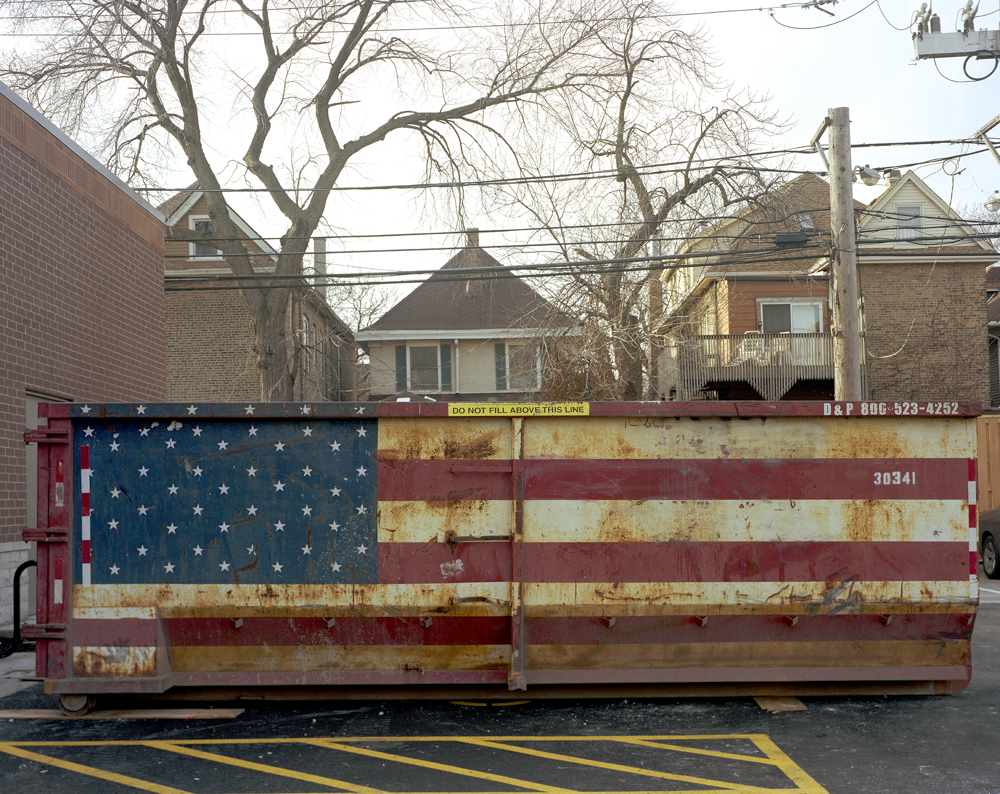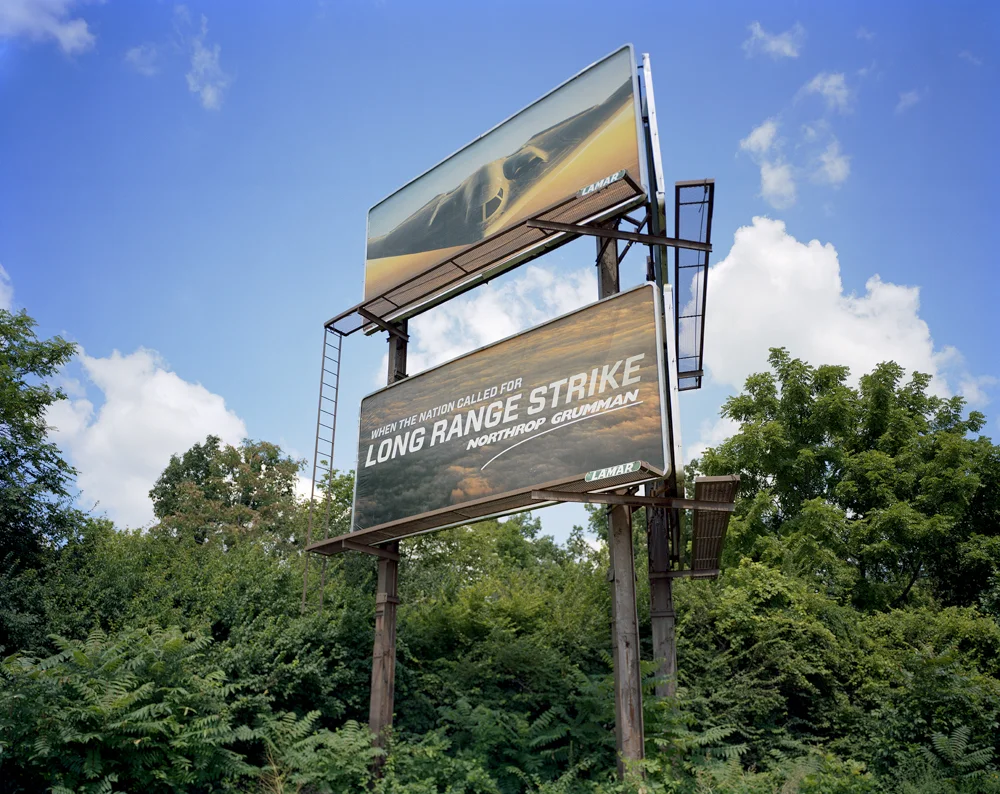After Eisenhower by Jasmine Clark
Issue 94
After Eisenhower is directly shaped by my upbringing in a conservative military community in Twentynine Palms, California. Both of my parents served in the United States Marines Corps. As an African American female who identifies as queer, my own conflicted views of the military spurred my curiosity about its role in American life.
President Dwight D. Eisenhower warned about the grave implications of the growing power of the military and the military industrial complex in his 1961 farewell address. Eisenhower's speech provides the framework for this project. Was his concern justified? My work explores the signs and clues that reveal the influence of the military on American culture and also the attitudes of Americans toward the military.
In many American places, especially areas surrounding military bases, military culture is an inseparable part of the landscape. One can see many signals of how the military is intertwined in the established American patriotic, national and Christian identity. Support for the military and veterans is simplified through iconography and combined with complex and polarizing issues such as religion, race, class, patriotism, and gun culture. I find the saturation of these oversimplified messages disconcerting; however, I am also fascinated by what they reveal. These messages, in both public and private spaces, are meant to have clear meanings, but these places and artifacts suggest other, more problematic truths about American life and our relationship to our military.
Jasmine Clark lives and works in Chicago, Illinois.
To view more of Jasmine's work, please visit her website.
Airstream of Chicago
Bugle Call
I Lift My Lamp
To God be the glory
Punching Bag
Dumpster
Carolina Blue
What Sam Wants
Japanese Massage
Palms Baptist Church
LRS-B
Home
Chain of Command
Gunnery Sergeant Hartman
Pyrite
South Second and Floyd Alley
Cando Country Market
The only thing we have
Empty Phrase
A.A. Bunker Storage




















